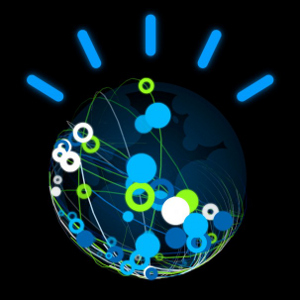Innovation that results in fewer lawyers? It's coming, says Planet Data CEO
Every industry that deals with traditional "content" of any sort will feel the icy touch of technology on its profits at some point. But what will be the next industry to be shaken by the growth of information technology? It could be law. More specifically, it could be legal discovery.
The music industry after more than a decade in decline still hasn't found its bearings in the post-Napster age, the newspaper industry has collapsed without the support of ad revenue, and the streaming video model threatens to completely disrupt the established profit models for television and cinema.
All of these industries have been thoroughly changed by the instant access to content and the new methods of distribution, storage, and organization that are related to that instant accesibility.
The process of legal discovery, in brief, is the collection of all the information that could be relevant or legally applicable in court cases of all sorts. This information is what eventually becomes evidence in court.
But the thing about legal discovery that stings is that practically any information about a particular client from any source could go through the review process.
And as more individuals create more "pure data" in the form of social networking content, emails, text messages, YouTube videos, message board postings, browser histories and so on, there is so much more data that needs to be sorted.
Look at Sony Computer Entertainment of America's recent lawsuit against PS3 Hacker George "GeoHot" Hotz as a casual example. There, SCEA successfully subpeonaed all of Hotz's locally stored data, and also his Paypal records, and Twitter and YouTube accounts as evidence against him.
Everyone is creating more data, and the impact of this enormous increase in data creation hits the law firms that specialize in review hardest. They're under pressure to utilize technology to cull this data set and do the review more accurately, more efficiently, and more cost effectively.
Howard Reissner, CEO of Planet Data Solutions, believes this change is going to result in something most people will appreciate: fewer lawyers.

"The client --namely corporations who are picking up the tab-- are looking for a solution that leverages both technology and manpower. Right now, there's no such thing as 'discovery in a box.' It can't all be done by machine. It's too complex, there are too many variations on identical information, and too many nuances involved in review documents. It requires a mix of technology, support, expertise and consulting."
Right now, the software tools used in legal discovery are mostly for the collection and processing of information, and not really for fine granular analysis that decides whether something is privileged/confidential or not.
However, Reissner says technology will eventually be able to assume a greater role in what he refers to as "ministerial" duties, the sort of low-level document review process.
"There's still going to be a need for counsel, for people who can take all of this raw information and put it together in a usable, creative format," Reissner said. "But the practice of law is going to change, and I think it'll be in a good way. You have thousands, maybe even tens of thousands of young lawyers now who are doing what is often mindless document review. And I don't necessarily think it's a bad thing if those jobs go away. They're not doing anything good for our society reviewing documents like this. Most of these people are quite intelligent, so let's find a better utilization for them in our economy."
Software that's able to locate legally responsive information from the swelling mass of personal data we create every day will render these jobs obsolete. Even if the machine's accuracy is lower than a human's, machine analysis is objective. Human analysis is always subjective and therefore always going to be less consistent and less predictable.

"The type of machine thinking and the type of software you saw on [IBM's] Watson is actually in use in the field of law today," Reissner said. "What made Watson both ridiculous and remarkable was the sheer number of computers and databases that were strung together for it to work so fast. The breadth and depth of information, and its ability to parse it fairly accurately was pretty awe-inspiring. But in the end, it's still a bunch of strung-together supercomputers. It can't replace a lawyer who is doing real, substantive work."
